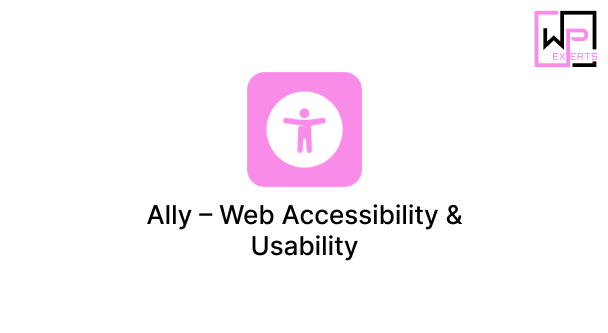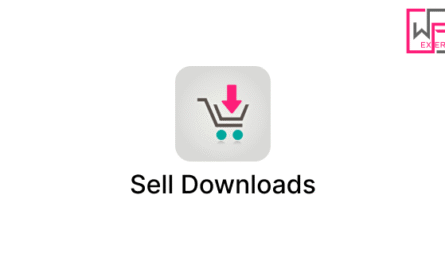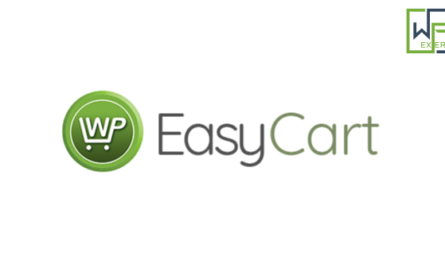Ally – Web Accessibility & Usability WordPress Plugin
In today’s digital age, ensuring that websites are accessible and usable for all individuals, including those with disabilities, is not just a matter of good design—it’s a legal and moral obligation. The Ally – Web Accessibility & Usability plugin for WordPress is a powerful tool designed to help website owners meet accessibility standards, enhance usability, and create a more inclusive web experience for everyone.
Introduction to Web Accessibility
Web accessibility refers to the practice of designing and developing websites, tools, and technologies so that people with disabilities can perceive, understand, navigate, and interact with the web effectively. This includes individuals with visual, auditory, physical, speech, cognitive, and neurological disabilities.
Ensuring accessibility is vital for compliance with standards such as the Web Content Accessibility Guidelines (WCAG), Section 508 (in the U.S.), and the Americans with Disabilities Act (ADA). Non-compliance can lead to legal ramifications, as well as excluding a significant portion of potential users or customers.
[modal_image thumbnail=”/wp-content/uploads/2025/05/Ally-–-Web-Accessibility-Usability-inner.png” large=”/wp-content/uploads/2025/05/Ally-–-Web-Accessibility-Usability-inner-slider.png”]
What Is the Ally Plugin?
Ally – Web Accessibility & Usability is a lightweight yet comprehensive WordPress plugin aimed at improving both the accessibility and usability of websites. It provides automated tools and features to identify accessibility issues, fix common problems, and allow users to adjust the website interface to meet their personal needs.
The plugin serves both developers and end-users by offering tools for code-level fixes and front-end customization. It empowers site owners to make accessibility improvements without needing extensive technical knowledge.
Key Features of Ally
1. Accessibility Toolbar
One of the standout features of Ally is its Accessibility Toolbar, which allows users to modify the appearance and functionality of a website in real time. Key tools include:
- Font resizing: Users can increase or decrease the text size to enhance readability.
- High-contrast modes: Toggle between dark, light, and high-contrast color schemes for visual comfort.
- Grayscale mode: Convert colors to grayscale for users with color blindness.
- Readable font: Switch to dyslexia-friendly fonts for improved comprehension.
- Keyboard navigation enhancements: Allow users to navigate using the keyboard only.
- Cursor enlargement: Makes the mouse pointer easier to see and control.
- Line height and spacing control: Adjust spacing to reduce visual clutter.
- Text-to-speech (optional add-on): Provides an auditory reading of on-page content.
2. Compliance Tools
Ally helps meet compliance with major accessibility standards by offering:
- WCAG 2.1 support: Covers principles such as Perceivable, Operable, Understandable, and Robust.
- ARIA landmarks integration: Implements ARIA (Accessible Rich Internet Applications) roles and attributes to improve navigation for screen readers.
- Skip links: Adds “skip to content” navigation for users using screen readers or keyboards.
- Focus outlines: Highlights selected areas for users navigating without a mouse.
3. Usability Enhancements
Usability features focus on improving the experience for all users, not just those with disabilities:
- Sticky headers and navigation improvements
- Back to top button
- Adjustable element spacing for better legibility
- Custom tooltips and labels
- Modal accessibility improvements
4. Accessibility Checker
While Ally does not replace full audits by professionals, it includes a built-in accessibility checker that scans pages for common issues such as:
- Missing alt text for images
- Improper heading hierarchy
- Inaccessible forms or buttons
- Low color contrast
- Missing labels or ARIA attributes
This tool provides site admins with alerts and recommendations for resolving these issues.
5. Customization Options
The plugin is highly customizable. Developers and site owners can tailor the toolbar’s appearance, language, and features. Options include:
- Toolbar position (left, right, top, bottom)
- Button visibility
- Icons and labels
- Color scheme customization
- Custom CSS support
This allows the plugin to match the branding and layout of any WordPress site.
6. Multilingual and RTL Support
Ally supports multiple languages and includes right-to-left (RTL) language support. This ensures accessibility features are usable for websites targeting non-English speaking audiences or those using RTL scripts like Arabic or Hebrew.
Installation and Setup
Installing Ally is straightforward:
- Go to the WordPress dashboard.
- Navigate to Plugins > Add New.
- Search for “Ally – Web Accessibility & Usability”.
- Click Install Now, then Activate.
- Access the plugin settings under Appearance > Ally Settings.
- Customize the toolbar and features based on your site’s needs.
The plugin works well with most WordPress themes and page builders, including Elementor, Divi, and Gutenberg. Minimal configuration is needed to get started, and default settings are optimized for usability out of the box.
Benefits of Using Ally
1. Better User Experience
By allowing users to customize how they interact with your website, Ally improves the experience for a wide range of people, including the elderly, users with visual impairments, and those with temporary limitations (e.g., a broken mouse or low lighting).
2. Legal Compliance
Using Ally helps move your website closer to compliance with WCAG, ADA, and other accessibility guidelines, helping you avoid legal action and meet ethical standards.
3. Improved SEO and Reach
Search engines reward accessible websites. Features like proper heading hierarchy, alt tags, and semantic markup can improve your site’s SEO, increasing traffic and visibility.
4. Inclusive Branding
Demonstrating a commitment to inclusion by adopting accessible practices enhances your brand image and builds trust with all visitors.
5. Easy Maintenance
Unlike complex accessibility frameworks, Ally is lightweight and maintained regularly. Updates keep it compatible with the latest WordPress versions and accessibility guidelines.
Limitations and Considerations
While Ally is a powerful tool, it should not be your only step toward accessibility. Key limitations include:
- It cannot fix complex accessibility issues such as improper semantic HTML or inaccessible third-party plugins.
- Automated tools have limitations and may not detect all accessibility barriers.
- Full accessibility requires manual testing, especially with screen readers and keyboard-only navigation.
Therefore, Ally should be used as part of a broader accessibility strategy that includes audits, user testing, and compliance reviews.
Conclusion
The Ally – Web Accessibility & Usability plugin is a vital tool for anyone looking to make their WordPress website more inclusive, user-friendly, and compliant with accessibility standards. It’s ideal for site owners, developers, and designers who want an easy-to-implement solution that balances technical features with user-centric tools.
By integrating Ally into your WordPress site, you not only open your content to a wider audience but also demonstrate a commitment to equality, usability, and digital inclusion. While not a complete replacement for a comprehensive accessibility audit, Ally is an excellent starting point—and one of the most user-friendly plugins available for web accessibility today.




